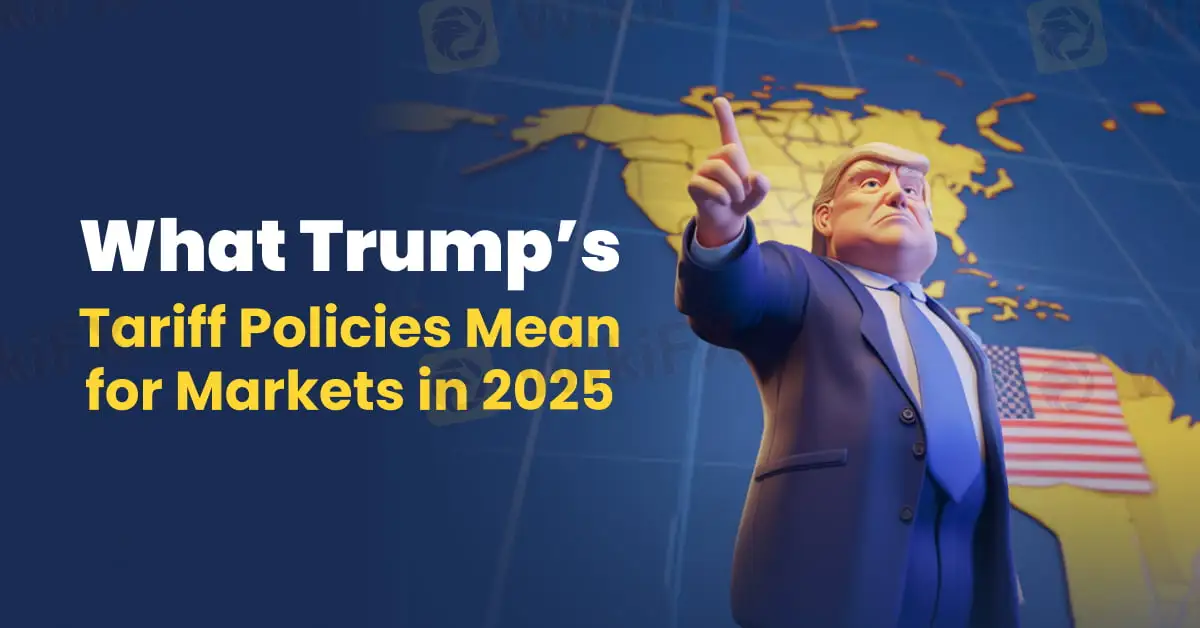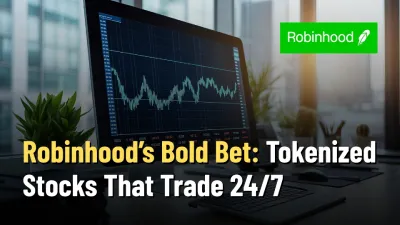PU Prime Launches “The Grind” to Empower Traders
Discover PU Prime’s new campaign, “The Grind,” and learn how trading discipline builds long-term success. Watch and start your trading journey today!
简体中文
繁體中文
English
Pусский
日本語
ภาษาไทย
Tiếng Việt
Bahasa Indonesia
Español
हिन्दी
Filippiiniläinen
Français
Deutsch
Português
Türkçe
한국어
العربية
Abstract:The imposition of tariffs by the United States creates ripples that extend far beyond political boundaries. These economic measures influence currencies, commodities, equities, and even cryptocurrencies, reshaping the dynamics of global financial markets. With the resurgence of tariffs under Donald Trump’s administration, traders must navigate this complex terrain with vigilance and strategy.

The imposition of tariffs by the United States creates ripples that extend far beyond political boundaries. These economic measures influence currencies, commodities, equities, and even cryptocurrencies, reshaping the dynamics of global financial markets. With the resurgence of tariffs under Donald Trumps administration, traders must navigate this complex terrain with vigilance and strategy.
Trumps trade policies are transformative. His administration has rolled out executive orders that target border controls, energy policies, and diversity programs within federal agencies. Among the most significant proposals is a 25% tariff on imports from Mexico and Canada, slated to take effect in February 2025. This has raised alarm across global stock markets. Additionally, policies to classify drug cartels as terrorist organisations and revoke birthright citizenship reflect a broader shift in US domestic and international strategies.
For the currency markets, the US dollar often strengthens during tariff disputes, as global uncertainty drives investors toward it as a safe-haven asset. Additionally, tariffs can increase inflation in the US, leading to expectations of tighter monetary policy by the Federal Reserve. These factors combine to boost demand for the dollar.

Conversely, currencies in export-driven economies often weaken under tariff pressures. For example, the Chinese yuan has historically declined during trade conflicts with the US. Similarly, emerging market currencies like the Mexican peso and South African rand are frequently impacted as trade flows slow and investor sentiment diminishes. For traders, this creates opportunities to capitalise on dollar strength by shorting weaker currencies.
Tariffs also have significant implications for commodity markets. For instance, reduced global economic activity driven by tariffs can lower demand for crude oil, exerting downward pressure on prices. However, geopolitical factors, such as OPEC+ production adjustments or regional conflicts, can counteract this trend, creating volatility.
Agricultural commodities often find themselves at the forefront of tariff battles. Retaliatory measures, such as those seen during previous US-China disputes, have disrupted export markets for American farmers. Similarly, industrial metals like steel and aluminium face price swings as tariffs increase production costs while supply-side issues, such as strikes or export restrictions, influence availability.
In the equities market, the impact of tariffs varies by sector. Industries heavily reliant on imports, such as automotive manufacturers and retailers, often suffer as increased costs eat into profit margins. On the other hand, companies focused on domestic production, including those in the defence and utility sectors, may benefit from protectionist policies.
Cryptocurrencies like Bitcoin offer an alternative avenue during tariff-induced turmoil. These digital assets are often viewed as a hedge against traditional market volatility. As global uncertainty grows, their decentralised nature attracts investors seeking stability outside fiat currencies. However, the volatile and regulatory-prone nature of cryptocurrencies requires cautious trading strategies.
The financial landscape in 2025 is being reshaped by Trumps aggressive tariff policies. Traders must stay informed of policy announcements, monitor sector-specific impacts, and prepare for heightened volatility. Flexible and well-hedged trading strategies are essential in navigating this environment.

Disclaimer:
The views in this article only represent the author's personal views, and do not constitute investment advice on this platform. This platform does not guarantee the accuracy, completeness and timeliness of the information in the article, and will not be liable for any loss caused by the use of or reliance on the information in the article.

Discover PU Prime’s new campaign, “The Grind,” and learn how trading discipline builds long-term success. Watch and start your trading journey today!

IG boosts FCA compliance by integrating Adclear’s AI tools. Learn how automation accelerates marketing approvals and ensures regulatory accuracy.

Join forex expert Tom as he shares his journey, trading wisdom, and thoughts on AI and the future of forex in WikiFX’s inspiring “Inside the Elite” interview.

Robinhood is reinventing stock trading with tokenized, 24/7 equities on the blockchain—ending settlement delays and redefining how markets move.
